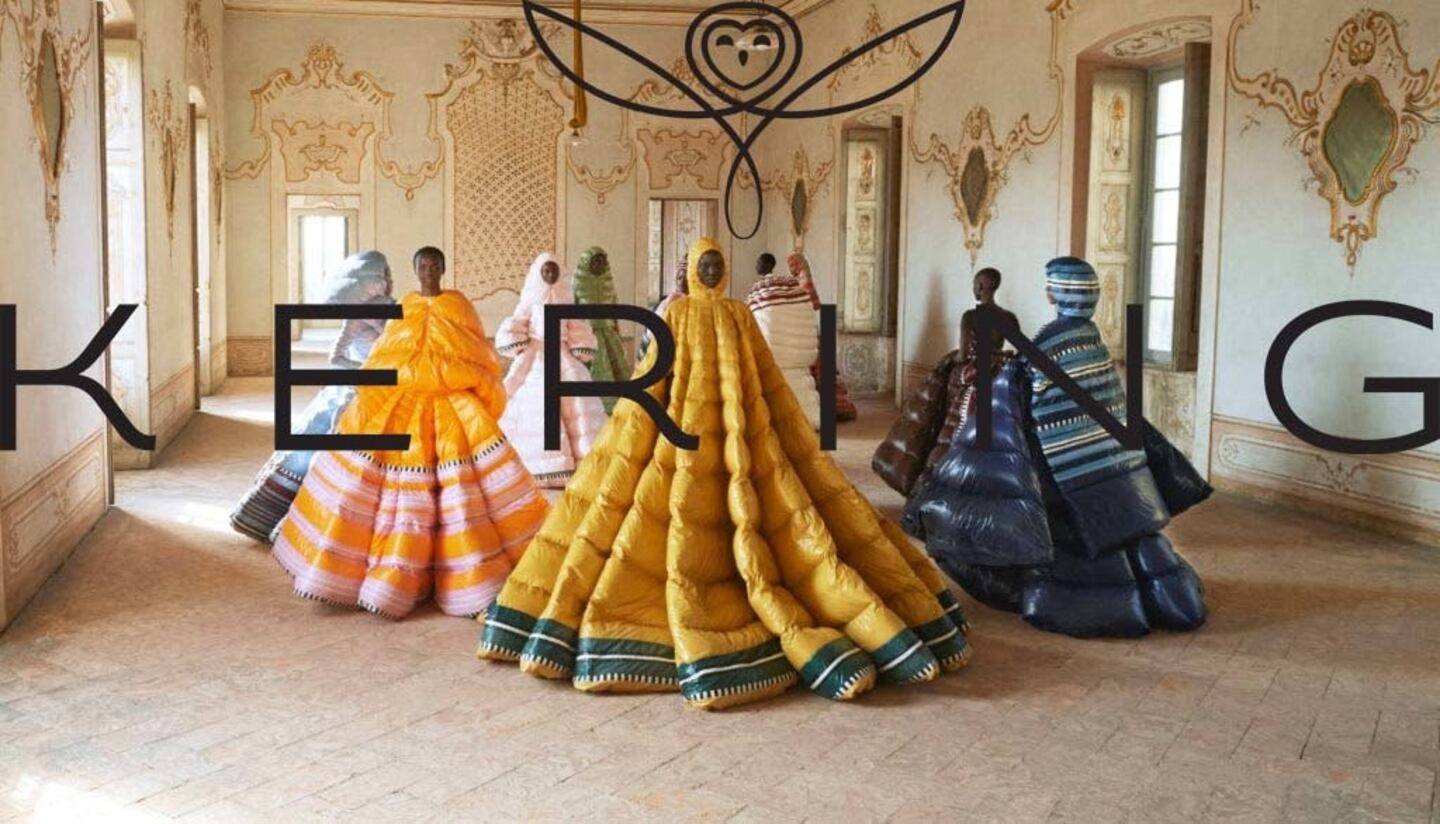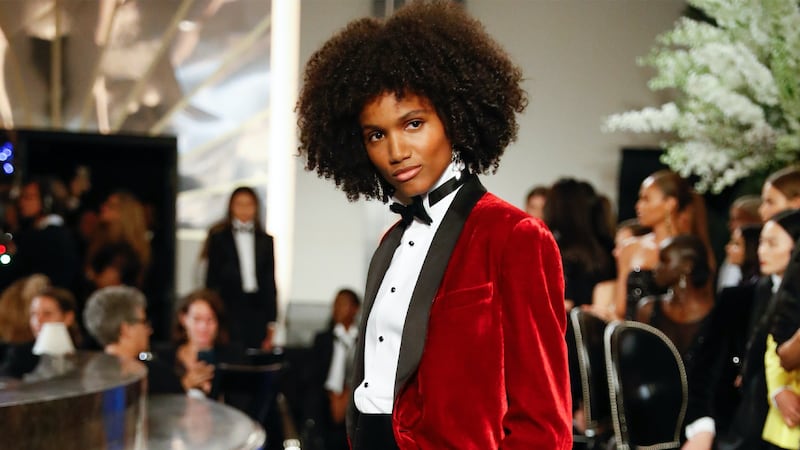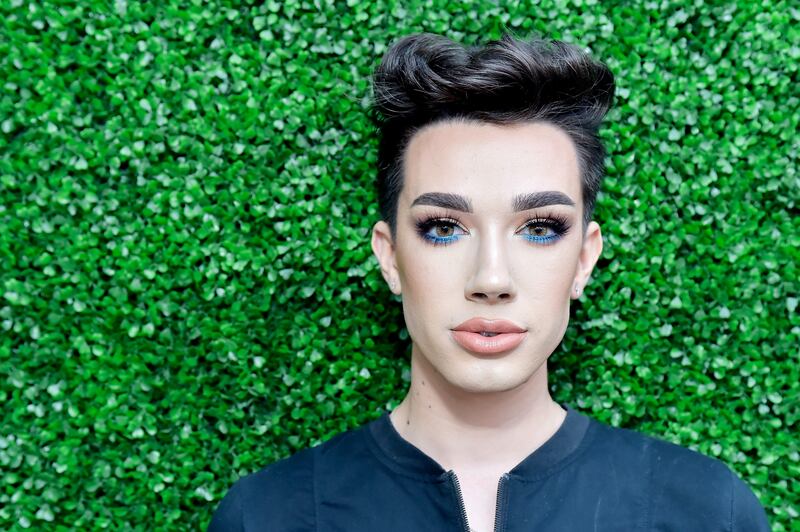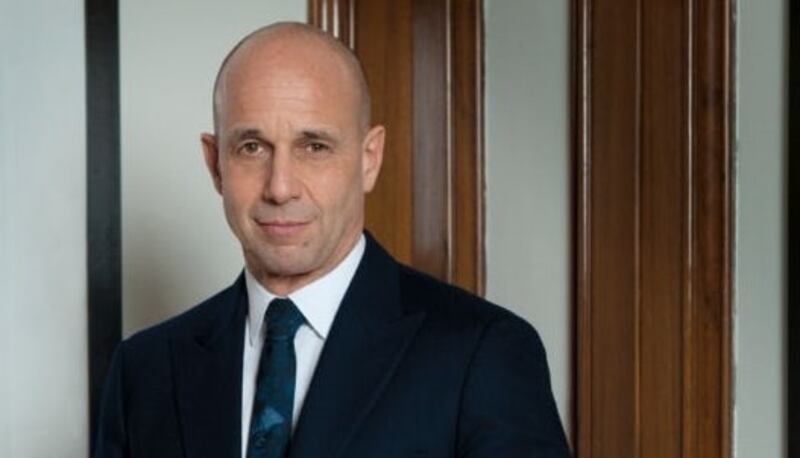
The Business of Fashion
Agenda-setting intelligence, analysis and advice for the global fashion community.

Agenda-setting intelligence, analysis and advice for the global fashion community.

Hello BoF Professionals, your exclusive 'This Week in Fashion' briefing is ready, with members-only analysis on the key topic of the week and a digest of the week's top news.
LVMH's splashy acquisition of American jewellery maker Tiffany & Co, the largest ever deal in the luxury space, may not be the final major transaction of a decade marked by continued luxury consolidation.
Bloomberg reported this week that Kering and Moncler have held preliminary discussions about a potential takeover of the fast-growing luxury outerwear brand led by entrepreneur Remo Ruffini. The market value of the brand is about €10 billion ($11 billion).
A representative for Kering had no comment. Ruffini downplayed the reports, saying in a statement that “he maintains contacts and interacts with investors and other sector participants, including the Kering group, in order to explore strategic potential opportunities to further promote the successful development of Moncler.” But at the moment, “there is not any concrete hypothesis under consideration,” he said.
ADVERTISEMENT
Ruffini is Moncler’s largest shareholder and told Reuters in April that he wants to see the brand through the next three-to-four years.
In an interview in October with BoF, Ruffini said that while the big groups have an advantage when it comes to real estate, he believes other synergies are often blown out of proportion. “I don’t mind being alone,” he said. The executive has been able to maintain his significant ownership stake in the business while navigating and scaling in a turbulent era in the market, so a deal with Kering may still not make sense.
But Ruffini may also see that his ambitions for Moncler require a larger partner with long-term and strategic vision, and while any talks appear to be in the early stages, a potential partnership does not come as a surprise. The conglomerates LVMH, Kering and Richemont increasingly dominate the luxury market, making it harder for independent players like Moncler to keep apace while also satisfying shareholders on a quarterly basis.
<strong>The conglomerates LVMH, Kering and Richemont increasingly dominate the luxury market, making it harder for independent players.</strong>
The benefits of luxury consolidation are well documented: these giant parent companies combine resources to invest in supply chain, production and e-commerce operations. Together, portfolio brands have more leverage to negotiate for the best retail real estate locations and rates, and can better position themselves inside multi-brand wholesale players. Big groups can also negotiate better advertising rates and devote bigger budgets to paid marketing.
For instance, a dusty brand like Tiffany will benefit from LVMH's sharp marketing prowess and retail knowhow, catering to a new generation of shoppers in the West, where it is lagging. On the flip side, Tiffany is a good bet for LVMH, which was looking to beef up its watches and jewellery segment, because its vertically integrated supply chain is ahead of that of many of its competitors. Tiffany also brings to its new parent a globally recognised brand identity and an extensive retail network (over 300 stores globally, with a high penetration in China).
The Tiffany deal puts pressure France's Kering and Switzerland's Richemont, both of which need to ramp up fast in order to continue to compete. (Richemont continues to dwindle in size compared to LVMH and Kering, and its most recent acquisition, the challenged Yoox Net-a-Porter Group, has required more investment than was originally anticipated.)
Kering has been on a hunt for an acquisition for some time, though Chairman and Chief François-Henri Pinault told investors earlier this year that the group’s priority is still organic growth from its existing brands. And there is certainly room to grow at Balenciaga and Bottega Venetta. But the conglomerate is still overly reliant on Gucci, which represents about 80 percent of the group's total earnings before interest and taxes. Gucci is also slowing down from the peak growth it saw in 2017 and 2018, when its topline jumped nearly 30 percent year-over-year.
But Kering has very specific requirements for potential acquisitions. The group reportedly looked at Versace but decided it was too expensive. (Versace was acquired by Michael Kors for $2.1 billion in 2018,) Kering is also said to have considered and passed on Valentino — owned by Mayhoola for Investments, the fund backed by the Qatari royal family — but both parties have denied this.
ADVERTISEMENT
While Moncler does nothing to beef up Kering’s hard luxury offering in light of LVMH’s Tiffany acquisition, the Italian-headqartered, French-founded outerwear brand still makes a lot of sense for Pinault’s group in terms of diversification. Moncler’s core outerwear offering is unlike any other brand at Kering, and is less trend driven than other categories.
<strong>Moncler's core outerwear offering is unlike any other brand at Kering.</strong>
Plus, the brand is on a growth run of recent years thanks to its Moncler Genius marketing strategy. The company is expected to generate €1.7 billion (about $1.8 billion) in revenue this year with an operating margin of 29 percent, up from €694 million in 2014. It is also well penetrated in China, with Asia representing 40.5 percent of sales in the first nine months of 2019.
Moncler would also fall in line with Kering’s sustainability efforts: the brand has invested in a renewable energy program for its stores and logistics centres and, like Gucci, has pledged to become carbon neutral by 2021.
But a Moncler acquisition would have its challenges, too. Not only would the deal require a premium price over the current valuation — Moncler's shares have risen 33 percent this year — but with an operating margin of around 30 percent, analysts question the underlying upside. "Adding value by acquiring Moncler is therefore not easy – especially if a significant premium was paid to take it over," wrote Bernstein's luxury goods analyst Luca Solca in a note.
Kering has demonstrated an ability to revive dormant brands, wrote Solca, and while the Genius project could lose steam, Moncler is not in need of a turnaround or new creative energy right now. The brand would benefit more from Kering’s e-commerce capabilities — online only represents about 8 percent of its sales — and real estate leverage as the outerwear brand continues to shift sales from wholesale to owned retail.
Kering would likely aim to help Moncler expand beyond outerwear, but the brand hasn’t been able to diversify in the past and its ability to do so impacts its growth capacity.
Analysts are also mixed on whether or not Kering should spend its M&A budget on soft or hard luxury, with Merrill Lynch preferring the former and Bernstein the latter. “Kering seems now short of options to fulfil its ambitions in hard luxury, other than a blue-sky mega-merger with Richemont,” said Luca Solca, adding that the deal would not be “transformative” for Kering. Solca has argued that only a combined Kering and Richemont could truly rival LVMH in categories, scale and structure and would generate synergies worth hundreds of millions of dollars. But neither player’s controlling family appears willing to sacrifice any control to make that kind of industry-changing deal happen.
The acquisition of Moncler would also not lessen Kering’s dependency on continued growth from China, which is threatened by protests in Hong Kong and a trade war with the United States. The region is also showing indications of weakening discretionary spending.
ADVERTISEMENT
Regardless, Kering needs to grow faster than it can on its own and Moncler is one of the best options in a market where independence is increasingly rare. But the real challenge for Kering will be its ability to effectively manage a growing portfolio of mega-brands. Eventually, the global luxury market will cool and these conglomerates will need to work harder and smarter to find growth in their margins.
THE NEWS IN BRIEF
FASHION, BUSINESS AND THE ECONOMY

Ralph Lauren Spring/ Summer 2020 | Source: Getty Images
Ralph Lauren and Brunello Cucinelli are up, Tod's and Richemont disappoint. The luxury sector fared well this month, with hopes of a trade deal between China and the US as well as increased M&A chatter adding to a predominantly positive results season. Investors were particularly pleased to hear that sales growth was accelerating in the second quarter for Burberry, despite a high double-digit decline in retail sales in Hong Kong, where the brand has 12 stores.
Bottega Veneta sweeps the Fashion Awards. At the star-studded gala, guests including Donatella Versace, Tom Cruise and Rihanna celebrated fashion's hottest talents, paid tribute to Giorgio Armani and looked to a more inclusive future. Among the winners were Moncler's Remo Ruffini, Rihanna, and Bottega Veneta, which won "Brand of the Year." Daniel Lee also took home "Designer of the Year" and "British Designer of the Year - Womenswear."
French luxury stocks hit by Trump's tariffs. The US President is proposing additional tariffs on $2.4 billion worth of French goods, ranging from handbags to sparkling wine and makeup. French luxury stocks fell 2 percent after the US announced the levies. Some companies are taking action to stay on Trump's good side: LVMH recently opened a new Louis Vuitton factory in Texas to hedge against trade tensions and build on the rapport Chairman Bernard Arnault has established with the US president.
Hong Kong government pledges funds to boost economy. Hong Kong is grappling with its first recession in a decade amid deepening concern that international investors may be growing more skittish. The boost brings the government's total stimulus to HK$25 billion ($3.2 billion) since this summer to right an economy, which is reeling from sharp drops in tourism and retail sales.
Hudson's Bay director says insiders' offer is only deal on the table. Richard Baker's take-private deal, seven years after he took Hudson's Bay public, values the company at just a third of its 2015 worth. David Leith, chairman of Hudson's Bay's special board committee that negotiated the sale to a buyout consortium led by Baker, said that a rival C$2 billion ($1.5 billion) offer for the retailer by private equity firm Catalyst Capital Group Inc was not a choice available to Hudson's Bay shareholders.
Nike seeks new weapon in battle against counterfeit goods. Proposed legislation would extend to design patents the same protections given copyrighted and trademarked goods. The legislation would also give US Customs and Border Protection the authority to seize goods believed to infringe patented designs. Currently, patent owners have to go through a trial at the US International Trade Commission to get an import ban, which is a slow and expensive process.
Tiffany & Co. sales take a hit. The American jeweller, which is being bought by LVMH, missed third-quarter estimates for profit on weak demand in the Americas and Hong Kong. Net sales in the Americas fell 4 percent, mainly dented by lower spending by foreign tourists, while sales in the Asia-Pacific region were flat, hurt by business disruptions in Hong Kong, where sales fell 49 percent.
THE BUSINESS OF BEAUTY

James Charles attending a KKW x Mario Dinner in Beverly Hills | Source: Getty Images
Ulta Beauty shows signs of recovery from declining makeup sales. Booming demand for celebrity-led beauty brands — including cosmetics lines from Kylie Jenner and YouTuber James Charles — has helped grow in-store transactions. Even so, Ulta's stock price has tanked after the retailer missed its earnings target in August as industry-wide makeup sales fell 7 percent.
Glossier partners with Nordstrom. The direct-to-consumer beauty brand is teaming up with the department store to sell its fragrance. Glossier will enter the main beauty floors of seven Nordstrom stores, including the new New York City flagship and stores in Seattle and Chicago. Each location has a temporary, roughly 300-square foot space dedicated to the Glossier You fragrance.
Body Shop owner urges Brazil to protect Amazon after fires hit suppliers. Natura, which also owns Aesop, has invested 1.5 billion reais ($357 million) in the rainforest to help preserve 1.8 million hectares of the ecosystem. The company convened meetings to improve dialogue between government officials, NGOs and local communities as deforestation in Brazil's Amazon region hit an 11-year high this year.
Lancôme to open new flagship stores. The beauty brand has plans to open two flagships in China and one in Paris. Lancôme already sells its products through airport retailers, department stores and other networks. The move comes as luxury goods makers and beauty firms are increasingly shifting sales online, but many are also sprucing up stores and trying to turn them into day-trip worthy destinations.
PEOPLE

Massimo Piombini | Source: Courtesy
Balmain CEO steps down. Massimo Piombini has left Balmain with immediate effect, after joining as chief executive from Valentino in April 2017. A statement from the company said that Piombini's departure was for personal reasons and that his replacement will be appointed in February 2020.
Tiffany board member steps down. Former Bulgari Chief Executive Francesco Trapani has stepped down from his position on the board of Tiffany & Co. with immediate effect. Trapani held the position since March 2017. According to documentation the company filed, his resignation was not due to any internal disagreements.
Macy's president exits. Macy's has announced the departure of President Hal Lawton, whose resignation takes effect December 6, 2019. The company has not yet named a replacement for Lawton, who joined the department store in 2017 and is leaving to become chief executive of Tractor Supply.
MEDIA AND TECHNOLOGY
Amazon critics protest outside of Jeff Bezos' home for Cyber Monday. The coordinated efforts hope to bring attention to warehouse worker deaths and injuries, the environmental costs of fast delivery and the increasing amount of information tech companies gather about customers.
Alibaba raises additional funding in Hong Kong listing. The e-commerce giant raised an additional HK$13.17 billion ($1.6 billion) after its landmark listing last month, the city's largest share sale in nine years. The company has received approval to list 75 million over-allotment shares at HK$176 per share, the same price it offered under its secondary listing.
Co-founders of Boohoo sell shares worth £142 million. Mahmud Kamani and Carol Kane, who started the fast-fashion group in 2006, sold 4.3 percent of company equity, reducing their combined holding to 15.8 percent. Boohoo has expanded quickly, listing its shares in 2014 and buying the PrettyLittleThing and Nasty Gal brands in 2017. Shares in the e-commerce giant are up 84 percent so far this year, giving a market capitalisation of £3.42 billion.
Disclosure: LVMH is part of a group of investors who, together, hold a minority interest in The Business of Fashion. All investors have signed shareholders’ documentation guaranteeing BoF’s complete editorial independence.
BoF Professional is your competitive advantage in a fast-changing fashion industry. Missed some BoF Professional exclusive features? Click here to browse the archive.
Hermes saw Chinese buyers snap up its luxury products as the Kelly bag maker showed its resilience amid a broader slowdown in demand for the sector.
The group’s flagship Prada brand grew more slowly but remained resilient in the face of a sector-wide slowdown, with retail sales up 7 percent.
The guidance was issued as the French group released first-quarter sales that confirmed forecasts for a slowdown. Weak demand in China and poor performance at flagship Gucci are weighing on the group.
Consumers face less, not more, choice if handbag brands can't scale up to compete with LVMH, argues Andrea Felsted.